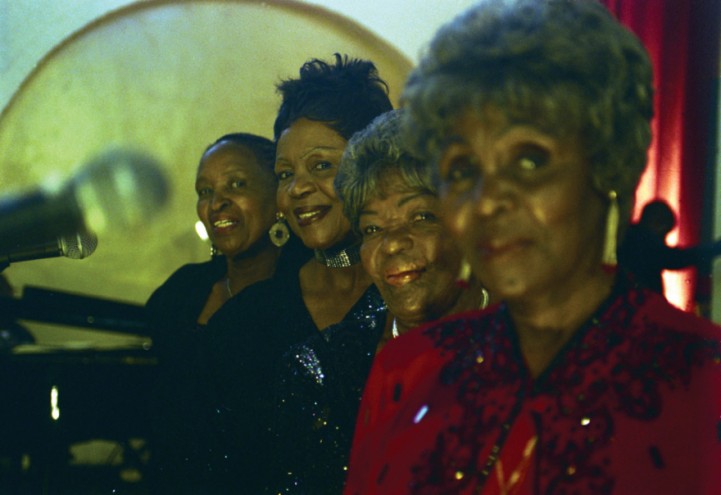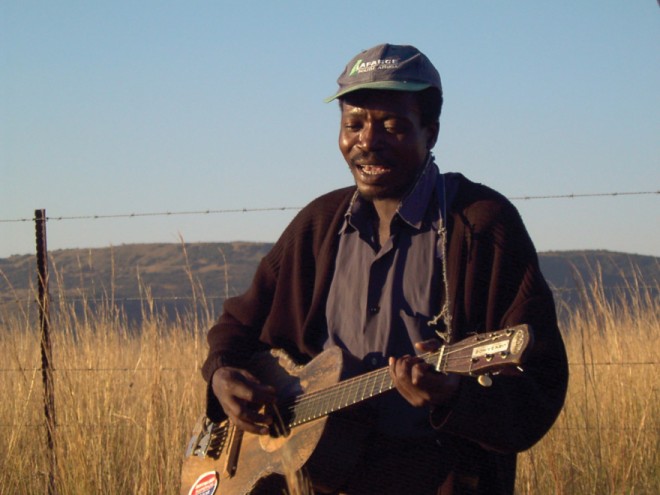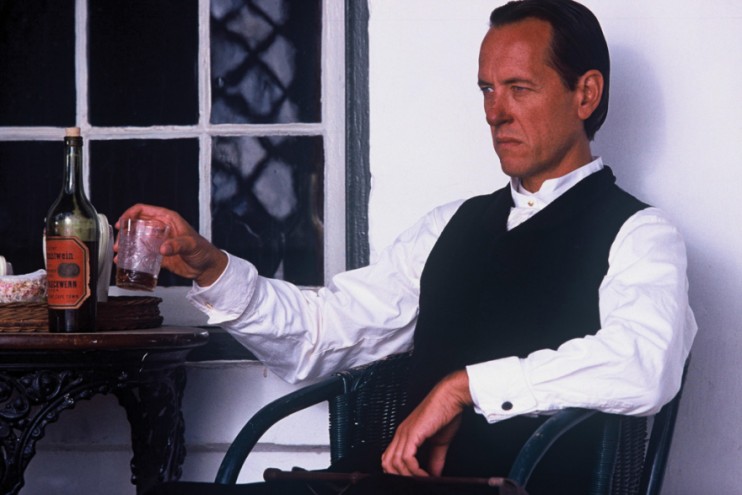First Published in
With which other countries does Britain enjoy a co-production treaty?
The UK has existing co-production agreements with Australia, New Zealand, Canada, France, Germany and Norway. Furthermore, the UK has proposed to establish co-production agreements with four new partners – India, China, Jamaica and Morocco – and is currently engaged in negotiations with these countries. We also make films with other countries in Europe using the European Convention on Co-Production.
Why with our shared history has it taken so long for the treaty to fall into place? Discussions have been going on at Sithengi for several years.
In 2004-2005, the DCMS, in consultation with the UK Film Council and the UK film industry, undertook a comprehensive, 18-month review of its co-production treaties. As a result of this review I announced on 28 February 2005 the UK’s intention to develop a new package of bi-lateral co-production agreements, which deliver maximum economic and/or cultural benefits to the UK and its partners. We proposed to establish new co-production agreements with South Africa, India, China, Jamaica and Morocco. The review assessed these new countries against certain criteria including the strength of their film industries and their ability to deliver economic and/or cultural benefits. It was only after this comprehensive review had been completed that the UK could commit to establishing a formal co-production agreement with
these countries.
A treaty between the UK and SA presents an obvious imbalance. The UK has a highly developed film industry and although South Africa has a film history unbelievably dating back to 1896, under apartheid people were not encouraged to express themselves openly and honestly. Creative story-telling talent expressed itself in literature and in the theatre, where fewer resources are required to tell a story well than are required to make a film. Since film is more expensive than writing novels or theatre production it requires many talented people in many disciplines to be working together to create a final piece of art, it is natural that film has taken longer to develop as a quality art form in South Africa. What steps have been taken to address this imbalance?
The agreement is designed to capitalise upon the shared or complementary characteristics of each country – increasing the opportunities for development in growth and competitiveness of both film industries. We don’t expect there to be an imbalance in this relationship, as both countries have different qualities to bring to the partnership. South Africa has a lot to offer the International Film Market, in particular: clearly articulated economic and cultural objectives for the film industry; a strong infrastructure; a diverse workforce; and a wide variety of locations. A good example of the South African film industry on show is the Oscar winning film Tsotsi.
Will the treaty get more local content stories made?
It is impossible to predict the types of films that will be made under the new co-production agreement. Both countries agree that this treaty will benefit both UK and South African film industries in drawing closer synergies between two industries. It will support the very best creative talent from both countries to work together to produce commercial and artistic films attractive to diverse audiences throughout the world.
As we have a shared history could there effectively be more relief for films that deal with South Africa and the UK’s common history? For example, could a film about the Boer War receive special attention?
One of the overarching aims of the agreement is to bring cultural benefit to both countries (both film industry and cinema-goers generally) by facilitating, and increasing the public availability of, films that reflect, enhance and convey the diversity of culture and heritage in both countries. However, there will not be special treatment given for particular content relating to shared interests of the UK and South Africa.
The South African film industry has excellent shooting facilities, infrastructure, technicians and locations that can double for anywhere in the world. However the weakness is on the creative side in writing skills, script development and directing talent. We know that the 25 words or fewer programmes is up and running with the NFVF but the UK has had great success with its Skillset programmes e.g. The Script Factory – the UK Film Council spent $35.8m on script development over the past six years. Could the minister be in a position to provoke state bodies, like the BBC, The Film Council etc, to set up script and talent development exchanges?
“25 words or less” is a UKFC programme with the NFVF which develops feature film scripts. In addition to this, there is a great deal of co-operative working on a number of projects to encourage and facilitate existing and emerging talent from both countries to work together.
How can SA production companies benefit from the UK Tax Credit Scheme?
South African companies can benefit from the UK film tax relief in two ways - by being established as a film production company within the UK which will be entitled to Government support worth 20% (or, for films costing over £20m, 16%) of UK production expenditure, provided at least 25% of film making takes place within the UK. Also by making a film under the terms of the new UK-SA bilateral treaty, and meeting the terms above. In co-productions the benefits of the UK relief can be combined with the South African tax rebate to finance the film.
One of the biggest problems facing the development of a successful SA industry is distribution – more than half of the population does not have access to cinemas or even television – will the UK help in addressing this problem?
The UK also shares challenges around its distribution and through the setting up of a new distribution unit of the UKFC and a specialised Print and Advertising Fund, the UKFC is looking into measures to support access to distribution.
While it is entirely possible for a UK production to shoot in SA with many areas of the country doubling for UK locations would it be difficult for a SA outfit to do the same in the UK?
The aim of the co-production treaty is not to recreate locations of the partner country, but instead about utilising the complementary characteristics of both countries to facilitate the making of films which might not otherwise be made.
How are the changes in film production – digital technology, the expanding exhibition market and the economics of multimedia access – affecting the set up of co-production treaties?
These issues do not affect or alter the treaty. Co-production agreements enable the manufacturing of films and provide a platform for filmmakers in different countries to work together in their creative capacity.
Joy Sapieka
For 16 years Joy Sapieka Associates was one of the UK’s leading agencies specialising in film, television and theatre publicity. Joy also personally represented Academy Award-winning director Sam Mendes promoting his work on both stage and screen including the films American Beauty and Road to Perdition. She has just written a book about promoting the Performing Arts in Britain entitled So you want to sell your show? to be published by Nick Hern Books (UK). In South Africa, where she is now based, Joy has worked as unit publicist on The Story of an African Farm, release publicist on Sophiatown and the South African release and pre-Oscar publicity for Tsotsi. She is currently working on a series of documentary films Total Soccer about the 2010 World Cup, and is associate producer of a screen adaptation of a Maeve Binchy story, Anner House, which has recently completed principal photography in Cape Town.
SA film lionised in NY
Local documentary A Lion’s Trail has been awarded an Emmy for Outstanding Artistic and Cultural Programming. The film, directed by Francois Verster and produced by Verster, Dan Jawitz and Mark Kaplan, tells the story of how Solomon Linda’s Mfube was transformed into The Lion Sleeps Tonight and follows attempts to redress injustices around the song’s copyright. Verster concluded his acceptance speech by saying: “The fact that a film with this topic has won an award on American soil is significant in that it reflects a growing acknowledgement of broader global injustice – and that Africa is in various ways beginning to reclaim its rightful place in the world.”
With which other countries does Britain enjoy a co-production treaty?
The UK has existing co-production agreements with Australia, New Zealand, Canada, France, Germany and Norway. Furthermore, the UK has proposed to establish co-production agreements with four new partners – India, China, Jamaica and Morocco – and is currently engaged in negotiations with these countries. We also make films with other countries in Europe using the European Convention on Co-Production.
Why with our shared history has it taken so long for the treaty to fall into place? Discussions have been going on at Sithengi for several years.
In 2004-2005, the DCMS, in consultation with the UK Film Council and the UK film industry, undertook a comprehensive, 18-month review of its co-production treaties. As a result of this review I announced on 28 February 2005 the UK’s intention to develop a new package of bi-lateral co-production agreements, which deliver maximum economic and/or cultural benefits to the UK and its partners. We proposed to establish new co-production agreements with South Africa, India, China, Jamaica and Morocco. The review assessed these new countries against certain criteria including the strength of their film industries and their ability to deliver economic and/or cultural benefits. It was only after this comprehensive review had been completed that the UK could commit to establishing a formal co-production agreement with
these countries.
A treaty between the UK and SA presents an obvious imbalance. The UK has a highly developed film industry and although South Africa has a film history unbelievably dating back to 1896, under apartheid people were not encouraged to express themselves openly and honestly. Creative story-telling talent expressed itself in literature and in the theatre, where fewer resources are required to tell a story well than are required to make a film. Since film is more expensive than writing novels or theatre production it requires many talented people in many disciplines to be working together to create a final piece of art, it is natural that film has taken longer to develop as a quality art form in South Africa. What steps have been taken to address this imbalance?
The agreement is designed to capitalise upon the shared or complementary characteristics of each country – increasing the opportunities for development in growth and competitiveness of both film industries. We don’t expect there to be an imbalance in this relationship, as both countries have different qualities to bring to the partnership. South Africa has a lot to offer the International Film Market, in particular: clearly articulated economic and cultural objectives for the film industry; a strong infrastructure; a diverse workforce; and a wide variety of locations. A good example of the South African film industry on show is the Oscar winning film Tsotsi.
Will the treaty get more local content stories made?
It is impossible to predict the types of films that will be made under the new co-production agreement. Both countries agree that this treaty will benefit both UK and South African film industries in drawing closer synergies between two industries. It will support the very best creative talent from both countries to work together to produce commercial and artistic films attractive to diverse audiences throughout the world.
As we have a shared history could there effectively be more relief for films that deal with South Africa and the UK’s common history? For example, could a film about the Boer War receive special attention?
One of the overarching aims of the agreement is to bring cultural benefit to both countries (both film industry and cinema-goers generally) by facilitating, and increasing the public availability of, films that reflect, enhance and convey the diversity of culture and heritage in both countries. However, there will not be special treatment given for particular content relating to shared interests of the UK and South Africa.
The South African film industry has excellent shooting facilities, infrastructure, technicians and locations that can double for anywhere in the world. However the weakness is on the creative side in writing skills, script development and directing talent. We know that the 25 words or fewer programmes is up and running with the NFVF but the UK has had great success with its Skillset programmes e.g. The Script Factory – the UK Film Council spent $35.8m on script development over the past six years. Could the minister be in a position to provoke state bodies, like the BBC, The Film Council etc, to set up script and talent development exchanges?
“25 words or less” is a UKFC programme with the NFVF which develops feature film scripts. In addition to this, there is a great deal of co-operative working on a number of projects to encourage and facilitate existing and emerging talent from both countries to work together.
How can SA production companies benefit from the UK Tax Credit Scheme?
South African companies can benefit from the UK film tax relief in two ways - by being established as a film production company within the UK which will be entitled to Government support worth 20% (or, for films costing over £20m, 16%) of UK production expenditure, provided at least 25% of film making takes place within the UK. Also by making a film under the terms of the new UK-SA bilateral treaty, and meeting the terms above. In co-productions the benefits of the UK relief can be combined with the South African tax rebate to finance the film.
One of the biggest problems facing the development of a successful SA industry is distribution – more than half of the population does not have access to cinemas or even television – will the UK help in addressing this problem?
The UK also shares challenges around its distribution and through the setting up of a new distribution unit of the UKFC and a specialised Print and Advertising Fund, the UKFC is looking into measures to support access to distribution.
While it is entirely possible for a UK production to shoot in SA with many areas of the country doubling for UK locations would it be difficult for a SA outfit to do the same in the UK?
The aim of the co-production treaty is not to recreate locations of the partner country, but instead about utilising the complementary characteristics of both countries to facilitate the making of films which might not otherwise be made.
How are the changes in film production – digital technology, the expanding exhibition market and the economics of multimedia access – affecting the set up of co-production treaties?
These issues do not affect or alter the treaty. Co-production agreements enable the manufacturing of films and provide a platform for filmmakers in different countries to work together in their creative capacity.
Joy Sapieka
For 16 years Joy Sapieka Associates was one of the UK’s leading agencies specialising in film, television and theatre publicity. Joy also personally represented Academy Award-winning director Sam Mendes promoting his work on both stage and screen including the films American Beauty and Road to Perdition. She has just written a book about promoting the Performing Arts in Britain entitled So you want to sell your show? to be published by Nick Hern Books (UK). In South Africa, where she is now based, Joy has worked as unit publicist on The Story of an African Farm, release publicist on Sophiatown and the South African release and pre-Oscar publicity for Tsotsi. She is currently working on a series of documentary films Total Soccer about the 2010 World Cup, and is associate producer of a screen adaptation of a Maeve Binchy story, Anner House, which has recently completed principal photography in Cape Town.
SA film lionised in NY
Local documentary A Lion’s Trail has been awarded an Emmy for Outstanding Artistic and Cultural Programming. The film, directed by Francois Verster and produced by Verster, Dan Jawitz and Mark Kaplan, tells the story of how Solomon Linda’s Mfube was transformed into The Lion Sleeps Tonight and follows attempts to redress injustices around the song’s copyright. Verster concluded his acceptance speech by saying: “The fact that a film with this topic has won an award on American soil is significant in that it reflects a growing acknowledgement of broader global injustice – and that Africa is in various ways beginning to reclaim its rightful place in the world.”








